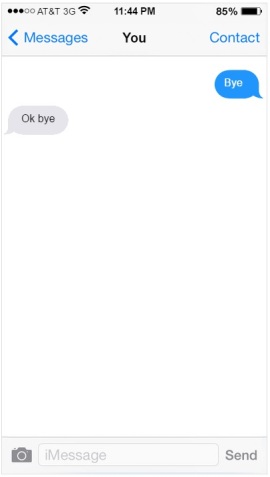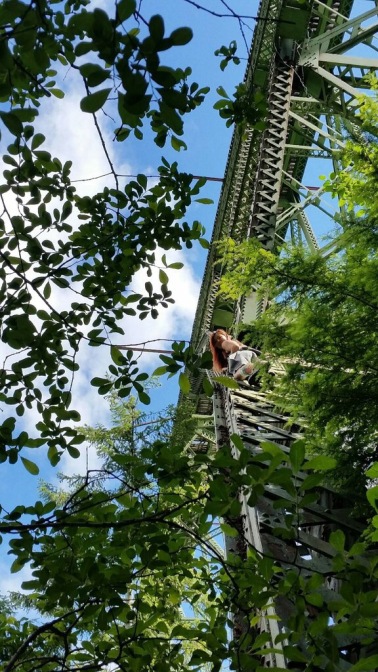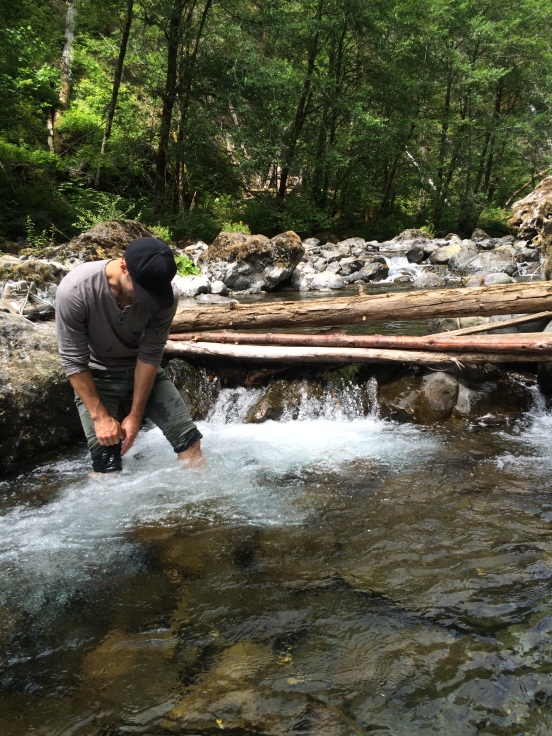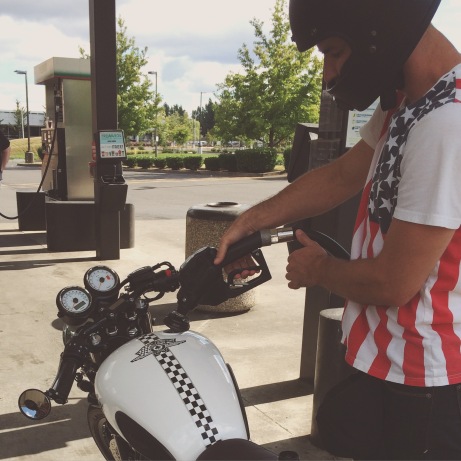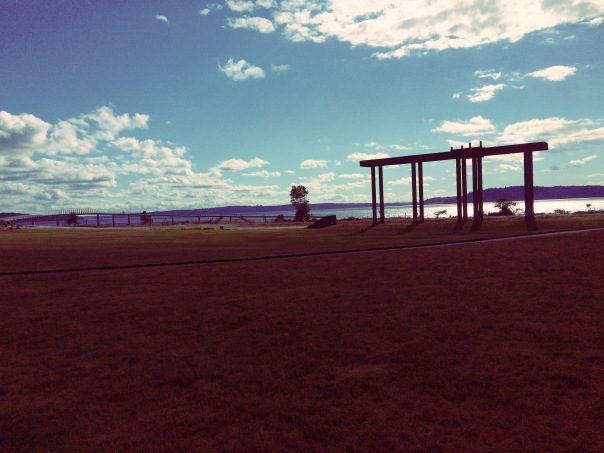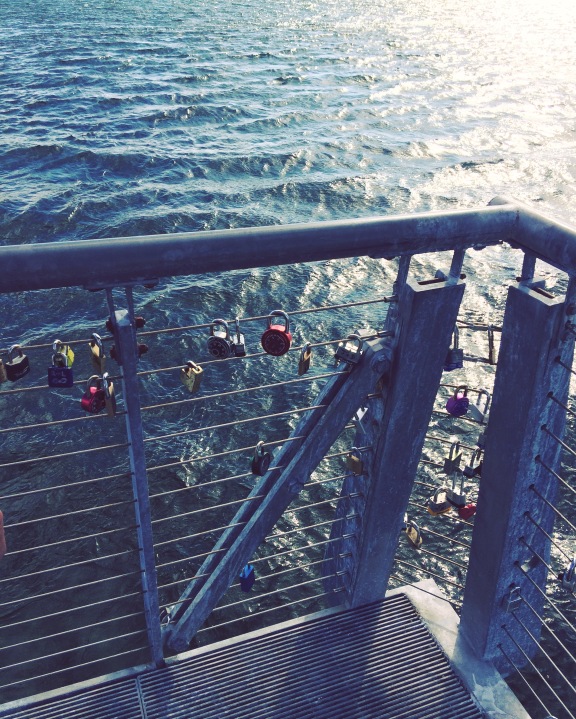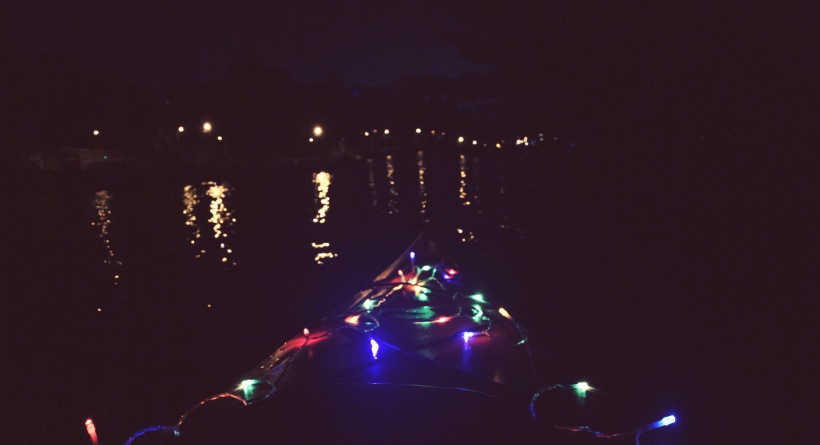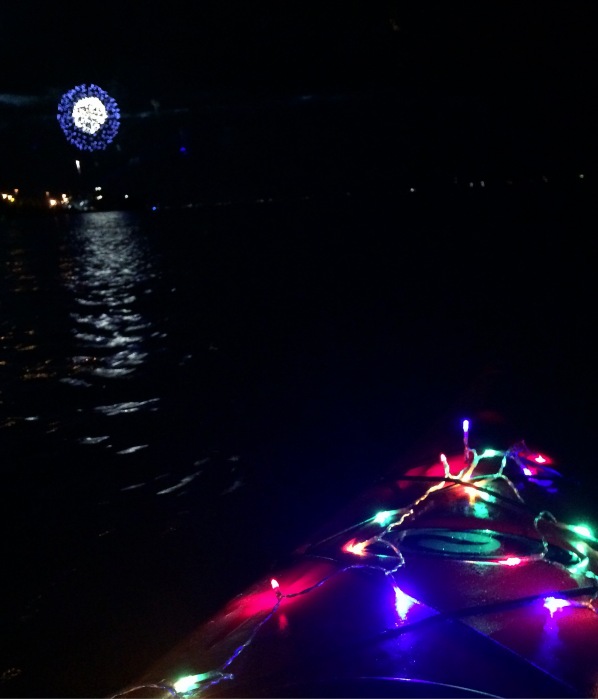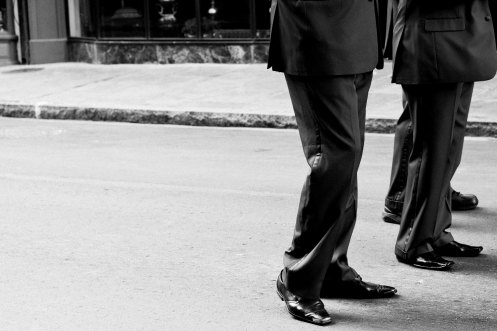Raking through my hair, the wind flutters against my neck, exposing my shoulders in brief, flapping increments to a warm glaze of sunshine. I cruise with confidence, easing my grip around the handlebars, having just dodged the nightmare of a bike lane or whatever you’d call that mess on 8th avenue. In stark contrast, Central Park West is expanse: with freshly painted, clearly delineated, white traffic lines, and law abiding, Lululemon yoga-pant citizens. Worry does not live here.
Upon spotting a red light ahead, I stop pedaling and let my wheels roll. There are rows of pedestrians to my right, cars to my left, but we do not hurry. Life is casual, like a porch on a Sunday afternoon, a coffee shop with hours yet to close, like particles of dust that occasionally catch the light as they sift across the room…
I hear a vehicle draw closely behind me, and as I turn my head to look, I am struck.
Once, by the meat of the car, and twice, by pavement.
Maybe, as a bullshit artist, I half-anticipated there to be beauty in destruction, like my body would somehow twist with grace and poise around the pristine curves of the Cadillac. I thought it’d be like shattering glass in a silent room, slow motion in the movies, and though gruesome, it’d be a spectacle to watch how fragile man is to metal.
But the crash itself is not brilliant. It is not slow, or forgiving, and it is far, far from beautiful. The SUV hammers my skull, shoulder, hip, and knee. It slams me into the pavement so quickly I devour my breath and lose it mid-swallow.
Lights out before I finish hitting the ground.
When I wake, there are voices: high frequency. My eyes are open, I think, but the faces are blurry and the sky is patched with static. There is metal in my mouth… maybe it is blood. It tastes like I’m late for a meeting and this isn’t how I die. It smells like mourning and stale bread and heather grey. Nothing makes much sense.
The straps on my backpack have hiked the lifeless weight of my body like the strings on a puppet imitating life. I don’t realize my shoulders are forcibly shrugged until I try to move, and can’t. I must get going — but nothing listens.
I blink and stay calm…. Too calm? I am not breathing. I am afraid that if I breathe, I will break.
I catch a glitchy screenshot of a face to my left, and I scare. I see two eyes, one nose, and a mouth, and it scares me because I cannot make sense of what it is. I cannot comprehend the arrangement and why sound comes out from the lips and how the eyes blink with fear. The face says things like: “Don’t move,” and “We saw the car drive into you,” and “Call the ambulance.” There is another woman pacing behind this one, with a cell phone in her hand. I begin going into shock. My left arm tingles with a million needles. Guttural whispers escape my throat.
To my right, there is panic. A frantic mouth speaks “you biked into the car,” and it confuses me. I was ahead of all the cars. I was in the bike lane. I was at a red light. I do not understand. I am late. I have to go. Please don’t tell my parents. Am I going to die? I can’t feel my body. You’re okay. You’re okay. You’re okay. Just breathe.
The mouth to my left is much nicer. She reminds me when to breathe. She reminds me to stay awake, though a nap sounds fantastic. She reminds me help is coming. What kind of help? I imagine she is holding my hand. That’s what they do in the movies.
I’m not sure if I lose consciousness again, or my memory skips, but the next thing I know, there are men in dark clothing; they look like paramedics. I am trembling, gasping for air. Stay calm, I think. Focus on the clouds. They are beautiful today. I ask, “Was it my fault? Is it OK?” I am referring to the car.
I am either tearing up, or my vision is blurry — I cannot tell which.
I hear the man ask out loud: who was in the vehicle? The mouth to my right, the frantic mouth, raises her hand. The mouth has a hand. Immediately, it makes sense… but soon it doesn’t.
I am surrounded by curious bystanders and cell phones. I hear the jingle of keys and leashes. I have a final tomorrow. They tell me I am bleeding from my head. I have an organization to run; we have an event this Saturday. They strap a brace around my neck. I have leases to print and checks to deposit. They lift me onto a gurney. I think my hair is a mess. If I’m going to die, can somebody fix my fucking hair.
And will anyone please just tell me, is the car OK?
In retrospect, I want to tell my stupid brain — yes, you idiot, the five thousand pound SUV is okay. Are you?
The men prop my feet up, head down. I am going to vomit. My eyeballs are pulsing. This is what dying feels like, I think. I beg them to prop me back up, but they don’t. A nice man tapes a nasal cannula on me and instructs me to breathe through my nose. I don’t understand. He tells me to hold my breath for 3 seconds after the inhale. I feel blood trickling from my face. I stare at a loose thread on his shirt. I fall in and out of consciousness. He tracks my breaths and keeps talking to me. His voice is low, calm, and steady. I focus real hard on it, as if I can will my heart to be as low, calm, and steady.
I inhale, I exhale, I stay cool and collected. I make jokes, and they laugh, and for one short, bumpy ride, I try to pretend my limbs are working. I imagine we’re going on a road trip, and that I’m not strapped in the back of a speeding ambulance.
Imagination can only take you so far. Turns out it can only take you several avenues.
The calendar says it’s been 18 days, but I have not slept 17 nights, so it’s hard to tell. It is as if I am living in a TV show; when I wake, I am reminded of yesterday like the recap of an episode. I am told through scribbles and post-its on what to do, where to be, who I am. I’ve shed the bandages and braces since, but thoughts are wading and attention is absent. My brain is screaming with pleas that will not be answered or understood.
I am struggling to place names and faces that seem familiar, but then again don’t, and when I look at photos of past relationships, I can’t remember why, and how, love used to feel. I have no shame with emotions that I once used to hide. I am impulsive and recognizant of the fact. What used to come so easy, like school and people, appear foreign and novel. The night terrors and sleep apnea keep me awake for days on end. My migraines are unrelenting; senses, hypersensitive and overwhelming. My thoughts are disconnected. It is like following a rhythm off beat with an uncertain promise of the verse meeting a chorus. But it never does.
Perspective, however, is the root of understanding.
When I went for a walk yesterday, I noticed an irrelevant speck of wings in the distance foraging for food. It was captivating. Instead of ear plugs to drown out all sounds, I played a soft song instead, and honed in on the intricate strumming of a cymbal in the background. In the past weeks, I spent time or spoke on the phone with people I love, and came to realization of who I don’t care for. I have a newfound level of respect for my brother, my roommates, my friends. I started writing again. The left side of the brain predominantly oversees language. It is with excruciating time and effort I am able to edit out dyslexic errors, but for the most part, I am writing and speaking sentences, and it makes sense. I am breathing. I am living. I am learning to forgive the man who did not check on me as I laid at the grill of his car. I am learning how to receive from others and not feel bad about it.
When you focus on your losses, you lose sight on what you have. So, I focus on what I have to gain, and consequently, forget my losses.
(I forget everything, anyway).
In all seriousness, I have this life. How can I complain?
To the dismay of poetic thinking, destruction itself is not beautiful. It is the creation that follows the dust and ash, that is.
I thank Gabe, Noa, Joluis, Amelia, Esther, Tasha, Sam, Karlie, Alissa, Leah, Cristina, Farhad, Cody, Rachel, Tiffany, the rest of my Columbia family, Esther, and my brother’s friends for visiting me, feeding me, or helping me with school.
I thank Ryan, Leah, Cuyler, Yvonne, Max, Leanna, and Faye for moving my entire apartment, and Ran, Martin, Cody for disassembling my bed.
I thank Jason, Leah, Sally, Yvonne, Leanna, Kayla, Martin, Justin, and Anna for helping me sort my thoughts and deal with my crazy emotions.
I thank my Lion KEEN team, particularly Victoria, for stepping up in my place.
I thank the countless medical providers, EMTs (Dave, Mauricio), and police officers (Officer Chris, Officer Pascua) who saved me. And Eddie Spaghetti for making me laugh.
I thank my physical therapist, David, as well as Zach and his amazing team at MSMPT for keeping me on track.
I thank my professors and my boss for showing me patience at a time when I need it most.
I thank Leanna, Kayla, and my brother Jae for being my rock.





